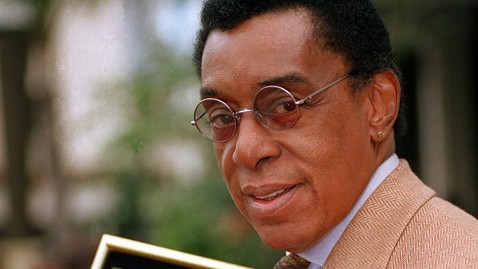Don Cornelius' Suicide Reveals Troubled Life of 'Soul Train' Founder

Credit: John Hayes/AP Photo.
Don Cornelius' death from a self-inflicted gunshot wound has drawn new attention to the dark side of the "Soul Train" founder.
Cornelius, 75, was plagued by health problems in the last three decades of his life. He underwent a 21-hour operation in 1982 to correct a congenital malformation in blood vessels in his brain. "You choose your brain surgeons for their stamina," he said afterwards, according to The Washington Post. "You're never quite the same afterward. Travel is always a real test."
His personal life also suffered. In 2008, he was arrested for felony domestic violence against his estranged wife, Victoria Avila-Cornelius. In 2009, he plead no contest to one count of "corporal injury resulting in traumatic condition of a spouse," was put on probation for 36 months, and ordered to pay over $1,000 in fines. She also filed multiple restraining orders against him.
But Cornelius' lasting legacy is his impact on diversifying pop culture and giving rise to a hugely influential group of black performers. Cornelius created "Soul Train" and hosted the show in national syndication from 1971 to 1993. It was the first real venue on American TV for soul music, and as the show's writer, producer, and emcee, Cornelius played a vital role in bringing stars like James Brown, Stevie Wonder and Michael Jackson to a wider audience.
He was known for the catchphrase with which he closed each episode: "I'm Don Cornelius, and as always in parting, we wish you love, peace and soul!"
"Soul Train" also spun off the Soul Train Music Awards and the Soul Train Lady of Soul Awards. "Soul Train" went off the air in 2006.
Cornelius' colleagues have been quick to commemorate him. Aretha Franklin, who shot to fame in part because of "Soul Train," released a statement calling Cornelius' death "sad, stunning, and downright shocking … a huge and momentous loss to the African-American community and the world at large."
In a phone interview with ABC News, Franklin said Cornelius was much more than a successful entrepreneur, he was a role model for the young African-American community.
"What I remember about Don and what stood out most to me was that he was a gentleman first, last and always," she said. "He had a great sense of humor, beautiful sense of humor."
Franklin said "Soul Train" was important, not just to her, but other emerging African-American artists at the time because it was a spring board for their careers.
"An appearance on 'Soul Train' meant, what it could mean, a person being virtually an unknown person to an American sensation overnight, very similar to 'American Idol,'" Franklin said. "It was like if you had a record that sold maybe 10,000 copies, to be on 'Soul Train' meant it might sell 100 to 200- to 300- or even 500,000 or more."
Smokey Robinson put out a statement saying Cornelius "brought exposure to black talent and a positive image to young black teenagers that had never been done before." Quincy Jones called his "friend, colleague, and business partner" a "visionary pioneer and a giant in our business."
"Before MTV there was Soul Train, that will be the great legacy of Don Cornelius," Jones said. "His contributions to television, music and our culture as a whole will never be matched. My heart goes out to Don's family and loved ones."
ABC News' Wonbo Woo contributed to this report